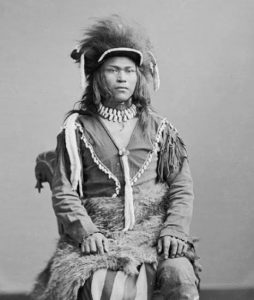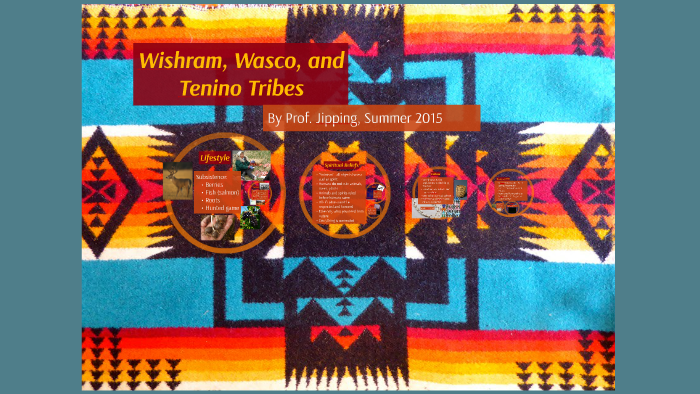
Echoes of the Cascades: The Enduring Spirit of the Watlala Tribe
In the heart of the Pacific Northwest, where the mighty Columbia River carves its dramatic path through the Cascade Mountains, lies a story etched in water, rock, and enduring spirit. It is the story of the Watlala people, a tribe whose ancient roots run deep into the very fabric of this breathtaking landscape, a people who, despite immense historical pressures and the literal drowning of their sacred lands, continue to assert their identity and connection to a heritage that refuses to be silenced.
For millennia, the Watlala, a Chinookan-speaking tribe, thrived along the treacherous yet bountiful stretch of the Columbia known as the Cascades. This was not merely a geographic location; it was the pulsating heart of their world, a nexus of culture, economy, and spirituality. Their traditional territory encompassed the area around the Cascades of the Columbia River, extending roughly from the modern-day Bonneville Dam to The Dalles, a region characterized by tumultuous rapids, abundant salmon runs, and a strategic position that made them vital players in the vast Indigenous trade networks of the pre-contact era.
Life for the Watlala was intimately connected to the river. Their villages, often comprising large cedar longhouses, dotted the banks, strategically positioned to maximize access to the Columbia’s unparalleled bounty. Salmon, the spiritual and economic lifeblood of all Columbia River tribes, was central to their existence. They were master fishers, employing intricate weirs, dip nets, and spears to harvest the teeming runs of Chinook, Coho, Sockeye, and Steelhead. This annual harvest was not just about sustenance; it was a deeply spiritual event, marked by ceremonies and rituals that honored the salmon and the Creator who provided them. Beyond salmon, the Watlala gathered camas roots, berries, and hunted deer and elk, their diet and lifestyle a testament to their profound understanding and stewardship of their environment.

The Watlala also held a unique position as "gatekeepers" of the Columbia River trade. The Cascades, with their challenging rapids, naturally funnelled trade goods and people through their territory. They facilitated exchange between coastal tribes, with their rich bounty of marine resources and cedar, and interior plateau tribes, who offered buffalo hides, dried meats, and obsidian. This strategic location imbued them with considerable influence and wealth, fostering a complex society with skilled artisans, powerful chiefs, and a vibrant cultural exchange that transcended linguistic barriers, often utilizing Chinook Jargon, a pidgin trade language that became the lingua franca of the Pacific Northwest.
First Contact and the Shifting Tides
The relative isolation of the Watlala and other Columbia River tribes was irrevocably altered with the arrival of the Lewis and Clark Expedition in 1805. As Meriwether Lewis and William Clark navigated these waters, they encountered a vibrant, bustling society that left a significant impression. Clark noted the "numerous villages" and the "great trade" that characterized the region, particularly around the Cascades. In his journals, he observed the Watlala’s sophisticated fishing techniques and their elaborate cedar longhouses, describing a people who were both industrious and prosperous.
This initial encounter, though relatively peaceful, marked the beginning of profound changes. The trickle of European and American traders that followed brought not only new goods but also devastating diseases – smallpox, measles, and influenza – to which Indigenous populations had no immunity. These epidemics swept through communities with horrifying efficiency, decimating populations and fracturing social structures. The Watlala, like many other tribes, suffered immense losses, weakening their ability to resist the encroaching tide of American settlement.
The mid-19th century brought a new era of American expansion. The Oregon Trail poured thousands of settlers into the Pacific Northwest, creating increasing pressure on Indigenous lands and resources. The United States government, eager to secure land for these new arrivals, initiated a series of treaty councils. For the Watlala and other tribes of the Columbia Gorge, these negotiations were complex and often fraught. While the Watlala, sometimes referred to collectively as the "Cascades Indians," were not signatories to a distinct treaty under their own name, their lands and rights were inextricably linked to the broader Dalles Treaty Council of 1855.
Under duress and with little understanding of the long-term implications of ceding vast tracts of land, various tribal leaders signed treaties that confined them to reservations far from their ancestral homelands. For many Watlala, this meant removal to the newly established Confederated Tribes of Warm Springs Reservation or the Yakama Nation Reservation. The forced relocation represented a profound rupture – a severance from the land, the river, and the cultural practices that defined them. Their traditional fishing sites, hunting grounds, and sacred places were suddenly outside their legal control, replaced by a life of dependency and cultural suppression on the reservations.
The Drowning of a Sacred Heart: Celilo Falls
While the treaties and forced removals inflicted immense suffering, the ultimate act of severance for many Columbia River tribes came not from abstract legal documents, but from concrete and steel. The mid-20th century witnessed the dawn of the dam-building era, an ambitious federal project to harness the power of the Columbia River for hydroelectricity, irrigation, and navigation. While these dams brought economic development to the region, for Indigenous peoples, they spelled the end of an ancient way of life.

The construction of the Bonneville Dam in the 1930s, followed by The Dalles Dam in the 1950s, delivered a catastrophic blow to the Watlala and their neighboring tribes. The Dalles Dam, in particular, was built just upstream from the very heart of Watlala territory, directly inundating Celilo Falls. Celilo, known in Sahaptin as Wyam ("echo of falling water"), was not merely a waterfall; it was the spiritual, economic, and cultural epicenter of the entire Columbia River Indigenous world. For 15,000 years, it had been a gathering place, a marketplace, a ceremonial site, and the most prolific salmon fishing ground in North America.
The loss of Celilo Falls, submerged beneath the waters of Lake Celilo on March 10, 1957, was an event of cataclysmic proportions. It was, as many elders have articulated, a spiritual death. "When Celilo died, a part of us died," is a sentiment often echoed by those who witnessed its disappearance. The sound of the falling water, the roar that had shaped generations of spiritual practices and daily life, was replaced by an eerie silence. The intricate fishing platforms, passed down through families for centuries, were swallowed by the rising waters. The salmon, whose migrations were once naturally slowed and concentrated by the falls, now struggled to navigate the dam’s fish ladders, their numbers drastically reduced. The economic base of countless families was obliterated overnight, exchanged for meager financial compensation that could never truly replace what was lost.
For the Watlala descendants, who had already endured generations of displacement and cultural assault, the drowning of Celilo Falls was the final, devastating blow to their traditional way of life on the Columbia. It severed their most direct and tangible connection to their ancestral lands and practices.
Survival and the Enduring Spirit
Despite these profound losses – the land, the language, the sacred sites, and the very structure of their traditional society – the Watlala spirit, though dispersed, refused to be extinguished. Today, their descendants are primarily enrolled with the Confederated Tribes of Warm Springs and the Yakama Nation, vibrant sovereign nations that continue to uphold the cultural legacy of the many tribes that constitute their confederacies, including the Watlala.
Within these larger tribal entities, the Watlala story is remembered, retold, and revitalized. Efforts are underway to preserve and teach Kiksht (Upper Chinookan), the Watlala’s ancestral language, ensuring that future generations can speak the tongue of their forebears. Traditional fishing practices, though confined to a few treaty-guaranteed sites and heavily regulated, continue to be observed, a powerful act of cultural continuity and a reaffirmation of their inherent rights. Salmon, despite its diminished numbers, remains a potent symbol of resilience and a central element in ceremonies and family gatherings.
The descendants of the Watlala are active participants in broader tribal efforts to protect the Columbia River ecosystem. They advocate for stronger salmon runs, cleaner water, and responsible resource management, understanding that the health of the river is inextricably linked to the health of their people. They are also at the forefront of cultural revitalization, teaching traditional arts, stories, and histories to their children and grandchildren, ensuring that the memory of the Watlala, the "People of the Cascades," lives on.
The story of the Watlala tribe is not merely a chronicle of loss and tragedy; it is a powerful testament to the enduring human spirit, the unbreakable bond between a people and their land, and the vital importance of remembering. Their journey, from prosperous river traders to displaced peoples, and finally to resilient modern communities, offers invaluable lessons about the devastating impacts of colonialism and industrialization, but also about the incredible strength and determination of Indigenous cultures to survive, adapt, and flourish against immense odds.
As the Columbia River continues its ceaseless flow through the Gorge, its waters carry not just the currents of today, but the echoes of the Cascades, a silent reminder of the Watlala people who once thrived there, and whose spirit continues to shape the landscape and inspire their descendants. Their history serves as a powerful call to acknowledge the past, honor treaty obligations, and support the ongoing efforts of Indigenous communities to reclaim, revitalize, and celebrate their rich cultural heritage for generations to come. The Watlala, though often overlooked in broader historical narratives, remain an essential thread in the vibrant tapestry of the Pacific Northwest, their story a beacon of enduring presence and profound connection.


